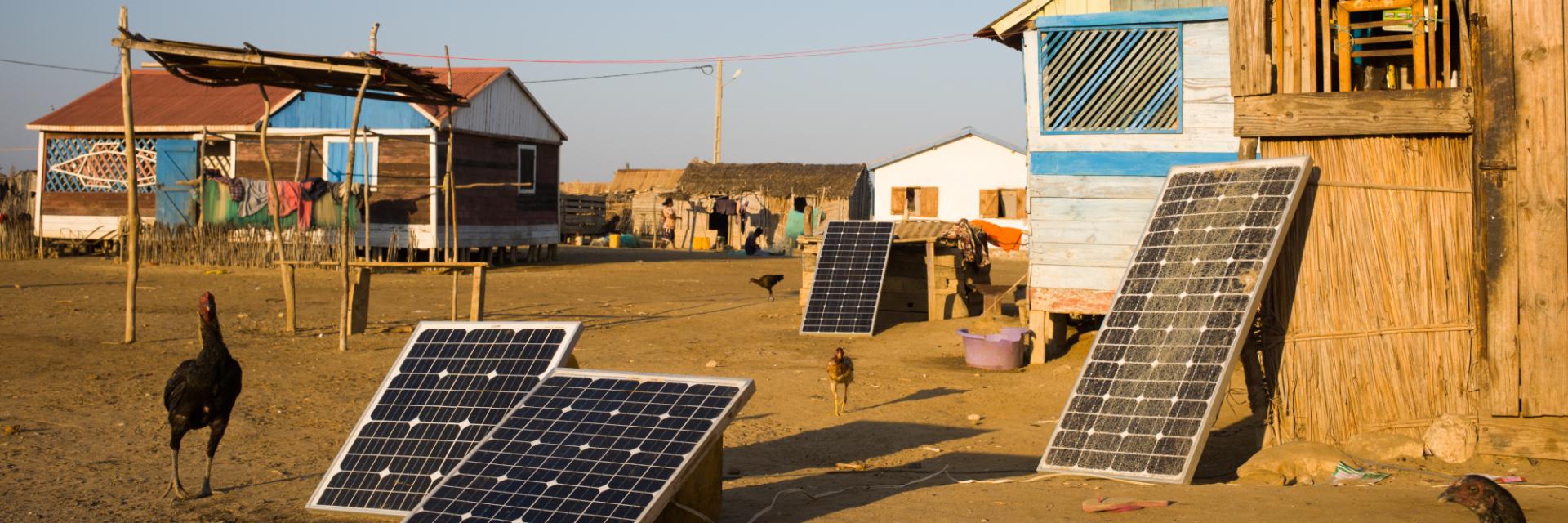Kigali, 1 July 2025 (ECA) - Africa’s quest for accessible, affordable, reliable, and sustainable energy is moving from vision to reality following a 2023 meeting that called on the African Union Commission and its partners to develop a Continental Energy Security Policy Framework.
From 27-28 June 2025, the UN Economic Commission for Africa (ECA) played an important role in advancing this vision, convening a high-level meeting in Kigali, Rwanda for a substantive review of the draft energy security policy framework.
According to Robert Lisinge, Director of ECA’s Technology, Innovation, Connectivity, and Infrastructure Development Division, the development of a robust energy security strategy is important for Africa's industrial future
“The need for a national energy security strategy has been decades in the making and is considered the backbone of Africa’s next level industrialization,” said Lisinge. “But to get there, we need to lay the groundwork with national energy security strategies to address energy insecurities and resultant impacts. The organizations reviewing the draft framework drafted by the ECA are charged with charting the way ahead and developing the overall scope and content of the framework” .
The meeting, held ahead of the 2025 Nuclear Energy Innovation Summit for Africa, examined challenges of supply and high cost of electricity, persistent access gaps, disruptions, inadequate energy infrastructure, financial constraints and geopolitics. Experts also explored regional energy integration and cooperation to ensure energy security and further reviewed the roles of institutional and regulatory frameworks, finance, emerging technologies and innovation, regional interconnections and market integration, and alignment with continental goals such as the Single African Electricity Market, the AfCFTA and Agenda 2063.
In setting the scene, Lisinge, highlighted the importance of the African energy security policy framework and its links to economic development and environmental sustainability.
“Energy is vital for regional integration and economic development. To successfully implement the proposed common energy policies and strategies, African countries need to prioritize the mobilization of domestic and private sector resources, which are essential for achieving energy independence and resilience,” he said.
Andrew Mold, Director of ECA’s Office for Eastern Africa, underlined the significance of affordable electricity for sustainable development. He noted that “the high electricity cost in Africa is mainly hindering economic competitiveness. ECA’s work on the regional energy security framework for Eastern Africa is a foundation for Eastern Africa toward a more secure energy future for the region, and the continental framework will further advance supply of reliable energy to advance economic transformation.”
Shehu Ibrahim Khaleel, Energy Policy Expert at the AUC said that “Africa’s energy future requires a comprehensive and coordinated policy framework that aligns with the continent’s sustainable development goals and Agenda 2063. The proposed continental policy framework can serve as a blueprint for achieving inclusive energy access and accelerating the just energy transition in a manner that will be consistent with ensuring energy security."
For his part, Peter Kinuthia, senior energy expert at AUDA-NEPAD, emphasized that “the proposed continental energy security policy framework helps to develop a common vision that transforms Africa’s energy landscape towards enhanced energy security to strengthen the foundation for an accelerated sustainable economic development."
“We aim to have the framework tabled at the upcoming meeting of the AUC Special Technical Committee in Addis Ababa in September 2025. Stakeholders of this agenda have high expectations that it will be adopted following its consideration by the Energy Sub-Committee of the African Union in the first quarter of 2026,” adds Lisinge.
A broad spectrum of regional experts attended the meeting, including representatives of the African Union Commission (AUC), the Economic Commission for Africa (ECA), AUDA-NEPAD, the Association of Power Utilities of Africa (APUA), and the African Forum for Utility Regulators (AFUR) and Central, Western, Eastern and Southern regional power pools, the East African Community, the East African Regulators Association and woman in energy and climate change stakeholders, as well as heads of Power Pools and APUA.
Issued by:
Communications Section
Economic Commission for Africa
PO Box 3001
Addis Ababa
Ethiopia
Tel: +251 11 551 5826
E-mail: eca-info@un.org

